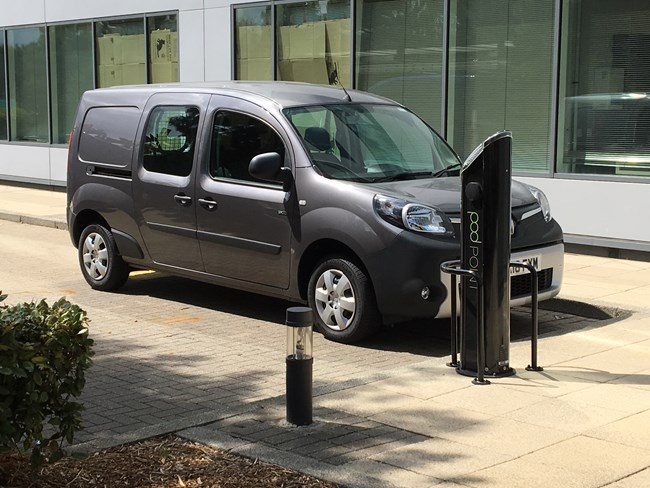- Tyres: The path of least resistance
- ETRUX receives Ford Pro Convertor status
- The Logistics Organisation adds to van fleet with Vanaways
- Northgate launches micromobility service
- Progress being made on shared EV charging, AFP reports
- Medisort electrifying van fleet with Bedeo
- ADVERTISEMENT FEATURE: Taking a shortcut to reduce commercial vehicle emissions
- The What Van? Road Test: Ford Ranger Raptor
- Speakers announced for Commercial Vehicle Show
- Check new vehicle registration details are correct, AFP tells fleets
World’s biggest electric commercial vehicle trial announced for UK
Date: Monday, December 10, 2018 | Author: Sean Keywood

A trial of electric commercial vehicles, said to be the biggest in the world, has been approved by UK energy regulator Ofgem.
The three-year Optimise Prime project will bring together leading power, technology, fleet and transport companies to test and implement the best approaches to the rollout of electric vehicles (EVs) for commercial enterprises.
Led by data technology solutions provider Hitachi Vantara and electricity distributor UK Power Networks, it will see up to 3,000 electric vehicles from Centrica, Uber and a large UK depot-based parcel carrier take to the road, supported by distributor Scottish and Southern Electricity Networks, Hitachi Europe and Hitachi Capital Vehicle Solutions.
It aims to deliver an end-to-end overview of what the switch to EVs means for the cables and substations that deliver electricity to the community, for the businesses that need to invest in new infrastructure, and for the end users that need to power their vehicles.
It is intentionally vehicle agnostic and includes depot, home, and on-the-road charging scenarios.
The project will launch in early 2019. Following a programme design and build phase, the first vehicles will be on the road during the second half of 2019.
The test area will include a range of urban, suburban and rural scenarios across the south east, south central and east of England.
A project spokesperson said: “Using large, real-life datasets and Internet of Things technologies, the project will create a detailed picture of the demands of electric fleet and private hire vehicles.
“This will make it possible to develop solutions that cut the cost of owning and running EVs, such as charging EVs outside the electricity network’s peak times.
“Electric vehicle technology has now reached a maturity where the vehicles themselves are ready for day-to-day and long-distance commercial use.
“However, moving the energy source for transport from combustion engines is not something the electricity grid was designed for, whether charging happens in concentrated locations — such as depots — or is widespread at employees’ homes or in public places.”
The spokesperson said the UK’s big CV operators must overcome several obstacles before they adopt electric vehicles on a large scale – all the way from the up-front capital hurdle to managing charging times.
They added: “Network operators, meanwhile, need to get a better understanding of the impact of commercial EVs on the country’s electricity grid.
“They are also looking to understand whether these vehicles can support the electricity network and help keep costs low for customers by discharging during peak times and recharging off-peak.
“The project is also vital if the UK wants to meet its carbon reduction targets.”
View The WhatVan Digital Edition


